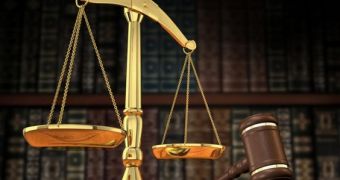Specialists working with the Jamestown Rediscovery Project claim to have solved a murder case dating back 389 years.
The case, dubbed “America's oldest” by archaeologists, boils down to one man's being shot in the lower leg and dying of blood loss.
“The lead bullet and shot fragments lodged in his lower right leg contained enough force to fracture his tibia and fibula bones, rupturing a major artery below the knee,” specialist William Kelso explains.
Until recently, researchers were utterly clueless about the man's and his killer's identity.
Daily Mail informs us that the victim's remains were unearthed at the site of the 17th-century Jamestown colony in 1996.
They had been placed in a coffin and buried under an old roadbed over three centuries before the archaeologists found them.
After carefully inspecting the bones, archaeologists concluded that they belonged to a 19-year-old man who had arrived to Jamestown from Europe and who had even spent some years living in said colony before being brutally murdered.
Since they were unable to figure out who the man was, researchers settled for calling him JR102c, or JR, the same source reports.
As the years went by, archaeologists and historians managed to get their hands on new information which they say indicate that the mysterious remains belong to a George Harrison.
They say that, according to evidence they now have at their disposal, many years ago a George Harrison and a Richard Stephens confronted each other in a duel.
During the duel, which took place in 1624, George Harrison got shot in the leg. He died shortly after.
Although the wound that George Harrison is said to have suffered is similar to the one that killed the man whose remains were unearthed in 1996, scientists say that their theory is not exactly bulletproof.
This is because the ammunition typically used in duels that took place in the 17th century was not powerful enough to cause this much damage.
The only explanation is that Richard Stephens, George Harrison's opponent, was cheating.

 14 DAY TRIAL //
14 DAY TRIAL //